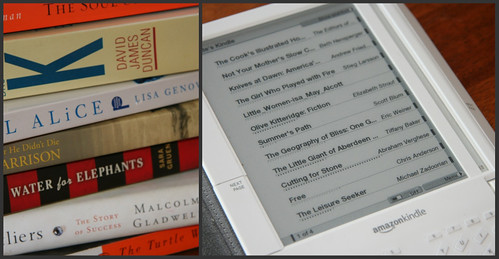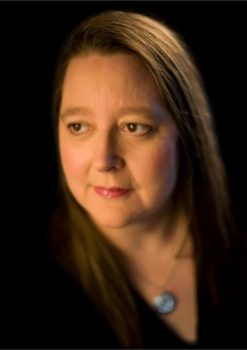As Barnes and Noble looks to sell itself, chatter about the “future of the book” has grown. But would “futures” be more appropriate? NPR investigates:
Dan Visel, a founder of the appropriately named Institute for the Future of the Book, points out that, first of all, a “book” can mean many things: A cookbook, a comic book, a history book and an electronic book are all animals of different stripes.
“It would be a mistake to think that these various forms have a single, unified future,” Visel says. “Rather, I think it’s more appropriate to say that there are futures of the book.” He sees some books, such as romances and thrillers, migrating easily to an electronic form.
Other types of books are not only meant to be read, but meant to be seen: Like when a New York subway rider whips out a copy of Going Rogue by Sarah Palin. “That sort of book largely has value as social display,” Visel says. “It’s not so much an instrument of revelation, because all the revelations in that book, for example, were posted online as soon as anyone could get their hands on it.”
As I’ve argued before, it seems unlikely that ebooks will completely kill off paper books—there will always be certain things that one medium does better than another. Alternative books forms flourish now because they offer new ways to tell stories that weren’t possible before; if they stay around, it will be because they offer something of lasting interest to the reader, something beyond pure novelty. Meanwhile, those who are concerned about print books disappearing might need to innovate, finding ways to make the experience of reading text on paper indispensable.




